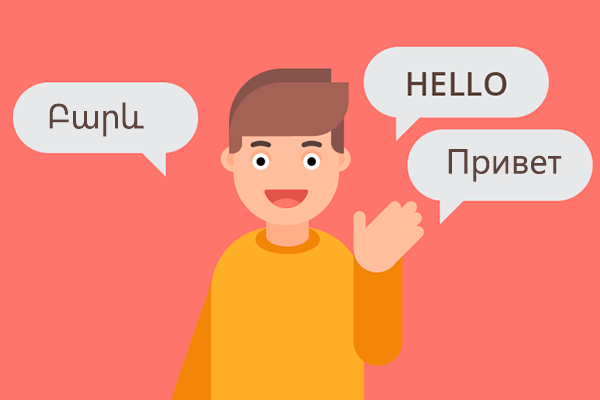
The Austrian philosopher L. Wittgenstein in his "Tractatus Logico-Philosophic" wrote: "The boundaries of my language are the boundaries of my world."
The thinker considered linguistics as a way of knowing the world. The more extensive the linguistic base of a person, the larger his personality. One of the main advantages of bilingualism fits into this concept - knowing and using two languages, the child has broader life prospects.
In our article, we will tell you how bilingualism develops in children and give advice to parents on how to help their child learn two languages.
▪️Who is a bilingual child
Bilingualism, that is, bilingualism, is the possession of two languages. A person equally knows both languages, understands them, actively uses them. There are both individual cases of bilingualism, and mass ones, when the whole country or any part of it communicates in two languages.
A vivid example of mass bilingualism is Ukraine, where 20% of children simultaneously use two languages - Ukrainian (state) and Russian. In the US, 28% of children are considered bilingual, and globally, more than 45%.
It is worth distinguishing bilingualism from ordinary knowledge of foreign languages. It's simple: bilingual children start speaking and thinking in both languages at the same time. They can express their feelings equally well on each of them.
It is believed that the optimal age for learning two languages is from 3 to 15 years. But all researchers agree in one opinion - the sooner you start, the better.
▪️How bilingualism is formed
Bilingualism arises due to migration flows in the world. People move to other countries, bring or give birth to children there. The foreign language environment does not frighten the younger generation. Even if at home children hear only their native speech, in society they quickly learn a previously unfamiliar language.
Another factor in the formation of bilingualism is the family. If the mother and father of the child have different native languages, then he will successfully learn both and will communicate in the one that is preferable for each of the parents.
▪️Myths and truth about bilinguals
To understand what bilingualism brings - benefit or harm - you need to dispel the myths around this concept. Let's consider some of them:
❌Myth: Bilingualism provokes a delay in the development of speech and thinking in children.
✅Truth: Bilingual children develop at the same pace as monolingual children. Even if the baby confuses words or mixes part of a word from one language with part of a word from another, this is not considered a sign of abnormal speech development. It won't be long before he can easily distinguish between the vocabulary of each language.
❌Myth: Learning two languages at the same time can confuse a child.
✅Truth: Yes, from time to time children can confuse grammar rules and other language patterns. But by the age of 4-5, these difficulties are in the past. The better he learns both languages, the clearer the line will be built between them.
❌Myth: Children with speech problems cannot learn a second language.
✅True: these children usually have more difficulty learning two languages, but this does not mean that they are insurmountable. You will have to spend more time to achieve the same high level of proficiency in both languages.
❌Myth: Bilingual children can get into trouble at school.
✅Truth: Numerous studies have proven that bilingualism has a range of academic benefits. Among them are the valuable skills of multitasking, cognitive agility, and finding the right solution quickly.
❌Myth: Children who just know a second language are already bilingual.
✅Truth: To be considered bilingual, you need to know and use both languages in roughly the same way. Yes, a dominant language is possible, but the regular practice of using and a developed vocabulary of the second is an indispensable condition for bilingualism.
Yours, Maria Altuhova,
Psychologist, Pedagogical University, Ukraine.

Comments